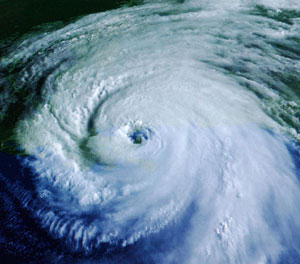 |
→ September 2005 Contents → Feature
|
Witness to the Storm
September 2005
| |||
|
An enduring attraction of New Orleans has always been its edginess, the frisson of the forbidden, a city that embraces the disreputable, where jazz and voodoo are mainstream. It has been the place where every Mardi Gras white, middle-class America could go to behave badly and not feel ashamed. After the almost biblical inundation that followed Hurricane Katrina, the dark side of New Orleans became America's nightmare. The anarchy and lawlessness that erupted as the result of the nation's disregard for the suffering of its fellow citizens confirmed our deepest fears about the fragility of civilization, and caused us to question the strength of the fabric that binds our society. The images of despair and turmoil that came one upon the heels of another brought us face-to-face with the structural weaknesses of America that are the societal equivalent of the breeches in the levees we thought protected us. Here was appalling evidence of the inequality, racism and violence that are with us daily, but which we choose to ignore rather than remedy.
The Editors |
|||
Back to September 2005 Contents
|
|
